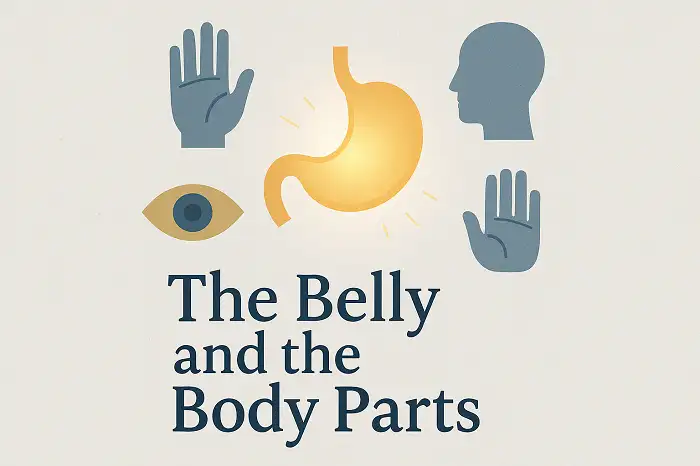English Vocabulary about Laziness English Vocabulary about Laziness Drag one's feet (idiom) to do something slowly because you do not want to do it https://www.youtube.com/watch?v=IRFEjcfzS8U&t=169s The advertiser was dragging his feet owing to non-payment for his previous work. The painter dragged his feet until he got ensured about receiving a good remuneration. I recommend you delegate some parts of your tasks to your assistants rather than drag your feet and handle the project at a snail’s pace. Idle (adj) lazy, indolent, (antonym: diligent) Children become too idle to go out for playing due to computer and mobile games. The propagation ...
Home » English Vocabulary in Context » English Vocabulary about Laziness for IELTS

English Vocabulary about Laziness for IELTS
Updated: by Dr. Mohammad Hossein Hariri Asl
Time to Read: 4 minutes | 949 Views | 74 Comments on English Vocabulary about Laziness for IELTS
Share This Post
About the Author
Dr. Mohammad Hossein Hariri Asl is an English and Persian instructor, educator, researcher, inventor, published author, blogger, SEO expert, website developer, entrepreneur, and the creator of LELB Society. He's got a PhD in TEFL (Teaching English as a Foreign Language).
Number of Posts: 4242



I can not deny that it is not my most favourite style of work where my success depends on dragging my collagues feet
* can not ➡ cannot
* colleague
* You have not seemed to understand the exact meaning of this idiom.
Reply to “torpid”
Torpid (adj): sluggish, lazy, sleepy, dreamy
Everyone have a torpid mind when they stay within their comfort zone.
* Everyone has
The moribund organization is recognizable by its torpid employees.
Great example!
Torpid people who act as a brake on any collaborative effort make me a nervous wreck.
It sounds like you’re frustrated with people who slow down or hinder teamwork. It’s understandable to feel that way, as collaborative efforts thrive on everyone being engaged and proactive. Maybe addressing the issue directly and finding ways to motivate and involve everyone could help ease the situation.
Reply to “idle”
Idle (adj): lazy, indolent, (antonym: diligent)
Children become too idle to go out for playing due to computer and mobile games.
I hear your concern. It’s true that computer and mobile games can sometimes lead to children spending more time indoors. Encouraging a healthy balance between screen time and outdoor activities is important. Finding engaging and fun ways for kids to enjoy the outdoors, like organizing group games or exploring new hobbies, can help motivate them to step outside and play.
The propagation of idleness in every society is a serious malady which should be overcome by spreading public activity.
* … public activities.
Frankly speaking, I envy the idle rich who earn easy money and have a easy-peasy lifestyle.
* have an easy …
Reply to “sluggish”
Sluggish (adj): lethargic, inactive, slow
The company performance is sluggish and inefficient this year because of bad financial condition.
* … conditions
The football player seems sluggish after being rehabilitated from his injured leg.
Rehabilitation can be a challenging process, and it’s not uncommon for athletes to take some time to regain their full form after an injury. It’s important to be patient and supportive during this period, as pushing too hard too soon can lead to setbacks.
Needless to say, sluggish people have a marked tendency for procrastination.
It’s often the case that a lack of energy or enthusiasm can lead to procrastination. When people feel sluggish, they might find it hard to muster the motivation to tackle tasks, leading to delays and putting things off. Finding ways to boost energy levels and stay organized can help combat this tendency.
Reply to “slothful”
Slothful (adj): disliking any form of physical exertion
She wakes up her slothful son to walk.
It’s great that she’s encouraging her son to be more active, even if he tends to be a bit slothful. Regular walks can be a good way to boost energy and improve overall health.
Slothful people usually tend to work in sedentary jobs.
* … tend to pick sedentary jobs
A well-earned rest is a sheer pleasure that cannot be witnessed by slothful people.
I surmise that there is a mistake in this sentence. When it comes to relative pronouns, there exists a subtle difference between “which” and “that”. I have been caught by the assessors of “IELTS-Blog” website many times for making this mistake. In fact, when we are NOT defining an object (Not a Person) and some information is being added to the object, it is a mistake to use “That”.
Examples:
1) He opened a company in England, which employed around 20 workers. [Correct]
2) He opened a company in England, that employed around 20 workers.[Grammatically Incorrect]
P.S. This point in mentioned in Cambridge Grammar book as well.
Also I can add that when the relative pronoun is to provide information about something or somebody that is completely indefinite to us, it’s better to use “that” and you shall not put a comma before “that”. However, when the entity is relatively definite or we already have some information about it, it’s better to use “which” and put a comma before it.
Thank you for making the good point!
You’re so welcome.
It’s true that a well-earned rest feels especially satisfying after a period of hard work and dedication. For those who are slothful, they may miss out on experiencing this unique sense of accomplishment and relaxation. Encouraging a balance between effort and rest can help everyone appreciate the value of both hard work and well-deserved breaks.
Reply to “languid”
John responded to our call languidly after he had received anesthetic drug.
* an anesthetic drug / anesthetic drugs – “Drug” with this meaning is countable.
My father frowns upon languid people and so do I.
It’s understandable that you and your father value hard work and energy. Languid people might not share the same drive, which can be frustrating for those who are more dynamic. It’s important to recognize that everyone has different strengths and motivations. Encouraging a positive environment and understanding the reasons behind someone’s languid behavior can sometimes lead to better outcomes for everyone involved.
Reply to “drag one’s feet”
Drag one`s feet: doing slowly because you do not want to do it.
Advertiser drags his feet owing to non-payment for previous work.
* The advertiser is / was dragging
* for his/her previous work
The painter dragged his feet until got ensured of receiving a good remuneration.
* … until he was / got ensured about …
I recommend you delegate some parts of your tasks to your assistants rather than dragging your feet and handling the project at a snail’s pace.
After “rather than”, use an infinite.
Reply to “phlegmatic”
My boss is such a phlegmatic person whom any attempt to impress, seems triviality to his eyes.
* My boss is such a phlegmatic person that any attempt to impress him seems trivial in his eyes.
He was so phlegmatic as to not be worth reprimanding.
It sounds like his indifferent attitude made it seem pointless to address his behavior. Phlegmatic individuals can sometimes appear so unresponsive or unbothered that reprimanding them feels ineffective.
Reply to “lethargic”
Lethargic (adj): tired, have no energy to do anything
The obese teenager seems lethargic after his voracious appetite to eat food.
* … after eating so much food due to his voracious appetite
Afternoon is the time when everybody tends to be lethargic.
Being old doesn’t mean being lethargic.
Being old doesn’t necessarily mean to be lethargic.
You should have stopped being lethargic.
Being Lethargic is a sine qua non for failure.
Your second sentence is semantically weird. “Sine quo non” is generally used to emphasize the building blocks of something significant and influential, e.g. happiness, gratification, etc., and not for laziness.
Reply to “inert”
Inert (adj): lifeless, static, sluggish or unmotivated
She was inert after her work that she do every day as a matter of routine.
* … that she does …
Inertia and inertness prevent me from reading the book. How inert I am.
Your second sentence is an exclamation. So, it’s better to put an exclamation mark at the end “!”.
Although I am so inert, I will have finished my task, in 5 days. [Future Perfect]
It’s great that you have a plan and a timeline for completing your task, even if you feel inert at the moment. Sometimes just setting a deadline can help push through that inertia and get things done.
Reply to “indolent”
Indolent (adj): lazy, not making any effort to do something, (antonym: energetic)
He felt too indolent to get out of bed last Friday.
Sometimes, we all have those days where getting out of bed feels like a monumental task. It’s important to recognize when we’re feeling particularly indolent and find ways to gently motivate ourselves.
Don’t surrender to sense of indolence. Otherwise you turn into quite a indolent person.
Don’t surrender to any sense of indolence. Otherwise, you will turn into a quite indolent person.
There is a grammatical point in Longman dictionary indicating:
Put quite before ‘a’ and an adjective and noun, not after ‘a’:
It look quite a long time (not a quite long time).
Although I made a mistake of “an indolent” instead of “a indolent”
It’s not a grammar mistake but just a fairly different usage. In fact, “quite a something” is generally used to show an exclamation and excitement. However, quite, independently, is an adverb that should be placed right before the following adjective. Therefore, if you meant to show an exclamation or simply wanted to put emphasis on that, your original sentence could also be correct.
Do you think that indolent people are smarter than ordinary ones?
We will surely discuss it in the class.